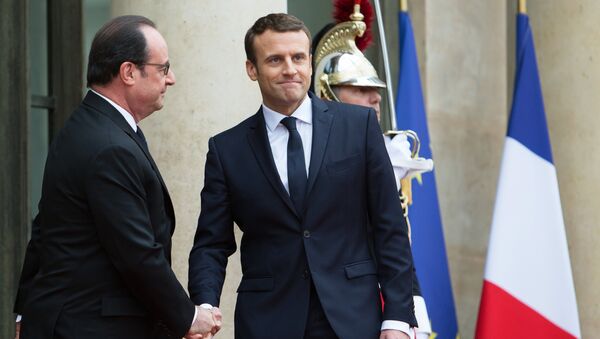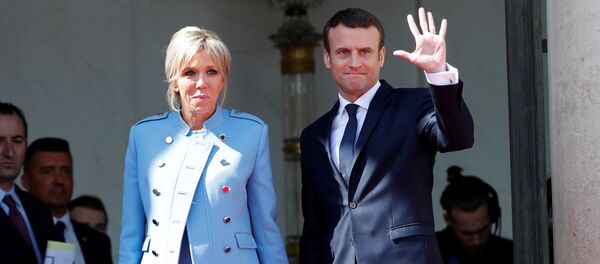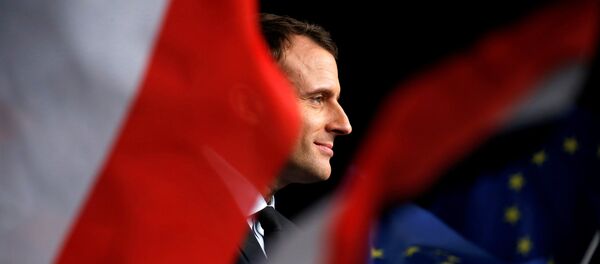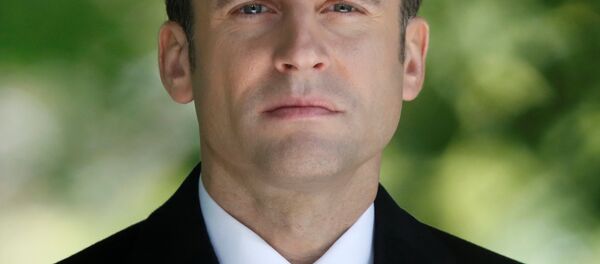Emmanuel Macron will name a prime minister on Monday and the new government will be announced on Tuesday, Reuters reported, citing a source close to the new head of state.
A career diplomat, the 61-year-old Etienne is a familiar face both in Brussels and Berlin.
“This is very good news. Philippe knows his way around EU affairs and is a strong proponent of Franco-German friendship,” Martin Selmayr, the head of cabinet under European Commission President Jean-Claude Juncker, wrote on his Twitter account.
“Act independently as part of the collective West”
Emmanuel Macron’s first and foremost campaign promise was to strengthen the EU’s hand.
“We need a more efficient European Union, more democratic and more political, as it is an instrument of our might and, therefore, our sovereignty,” Macron emphasized.
Meanwhile, Macron plans to work closely with EU countries to minimize the negative effect of Brexit.
In an interview with the online newspaper Vzglyad, Sergei Fyodorov, a senior researcher at the Institute of Europe in Moscow, said that under President Macron, France, together with Germany, would try “to put the EU on course to sustainable development.”
He also reminded of Macron’s pledge to stay the course on foreign policy, charted by Presidents Charles de Gaulle and Francois Mitterrand, where France “acts independently as part of the collective West.”
Not everyone in Europe is euphoric about Macron’s election though. Poland and Hungary fear that Macron’s support for the German-backed idea of a "multi-speed" Europe could erode the single market that has been the biggest benefit of their EU membership and exclude them from the decision-making circle in Brussels.
Polish officials have already accused Emmanuel Macron of resorting to double standards and of violating the spirit of the common European market.
To be on par with Trump and not to bow to “Putin’s diktat”
As far as France’s relations with the US go, Macron is a true-blue proponent of trans-Atlantic solidarity, which he sees as a guarantor of European and global security, Sergei Fyodorov continued.
That said, Macron will still seek an equal-footed partnership with the US, Fyodorov said, adding that in foreign policy Macron will stay the course of his predecessor, Francois Hollande, and will keep fighting international terrorism as part of the US-led coalition.
In an interview with Vzglyad, Moscow-based political scientist Yuri Pivovarov said that, despite his promise not to dance to Putin’s tune, Emmanuel Macron “will still have to consider the interests of a country like Russia.”
“Third round of the presidential election”
As a centrist, Emmanuel Macron is facing the daunting task of uniting a deeply divided country plagued by high unemployment and a growing far- right movement.
"In the second round of the election, people voted for him in order to oust Marine Le Pen, not for his program," Philippe Moreau-Chevrolet, a political consultant, told Al Jazeera.
More than 40 percent of French voters supported the far-right and far-left candidates, while a hefty 25 percent did not vote at all on May 7. This means that a large majority of the French people don’t trust Macron.
“He will have to unite the society and win the people’s trust, which will not be easy,” Sergei Fyodorov noted.
With next month’s parliamentary elections looming tall, Emmanuel Macron still has no party of his own to lean on.
Yuri Pivovarov said that Macron will be hard put to cobble together a parliamentary majority and, therefore, will be forced to “play games.”
“And here [National Front leader] Marine Le Pen has good chances of recouping herself,” Pivovarov added.
Emmanuel Macron won the French presidential election with over 66 percent of the votes, way ahead of the far-right hopeful Marine Le Pen, who came in second with almost 34 percent.
Never miss a story again — sign up to our Telegram channel and we'll keep you up to speed!





